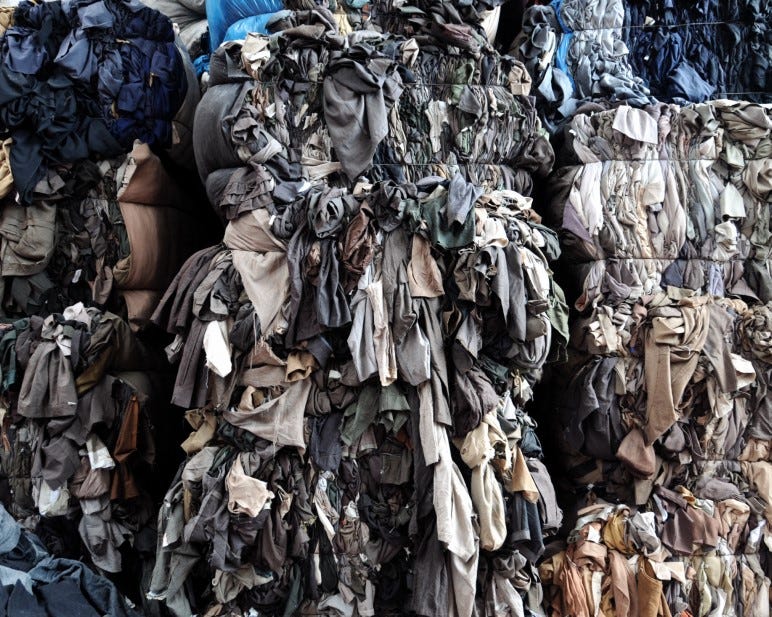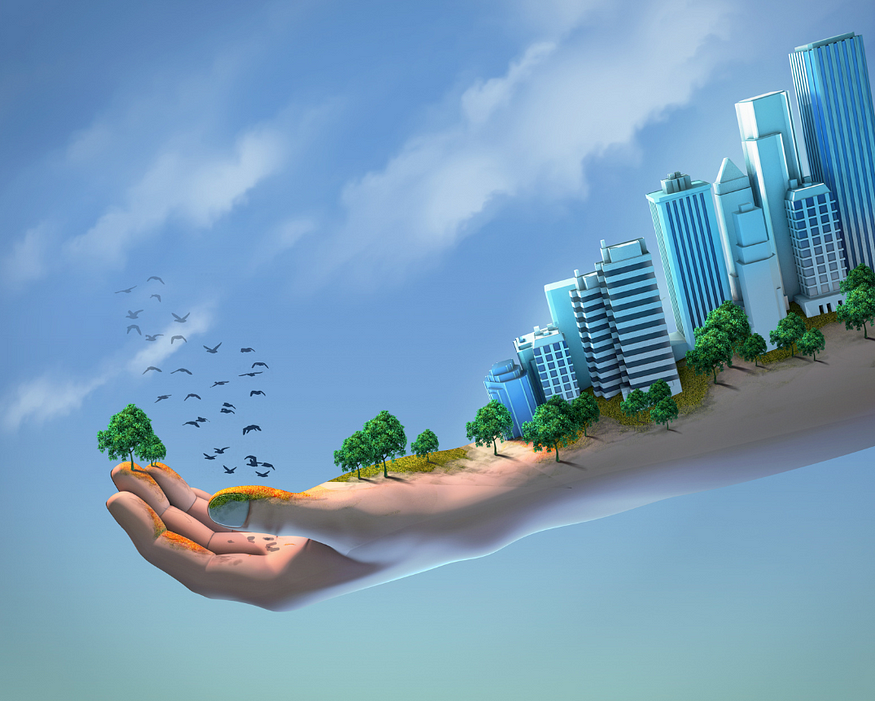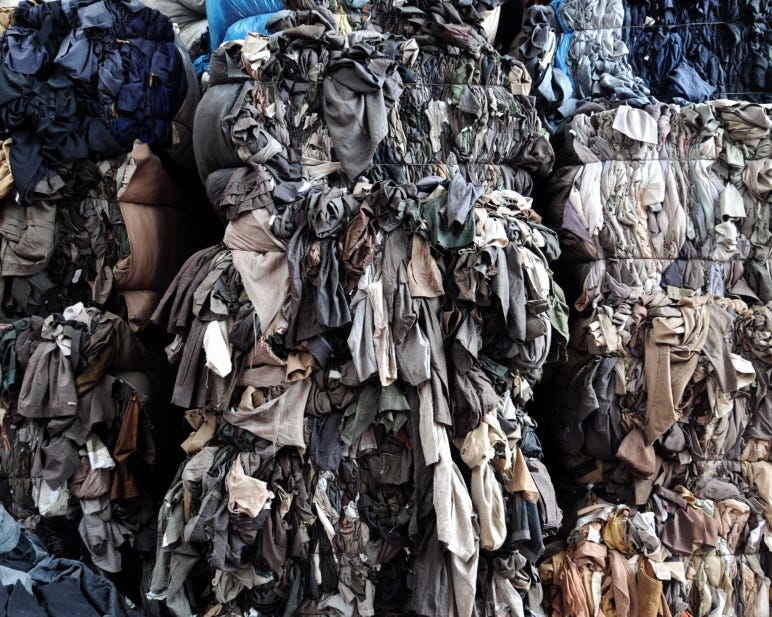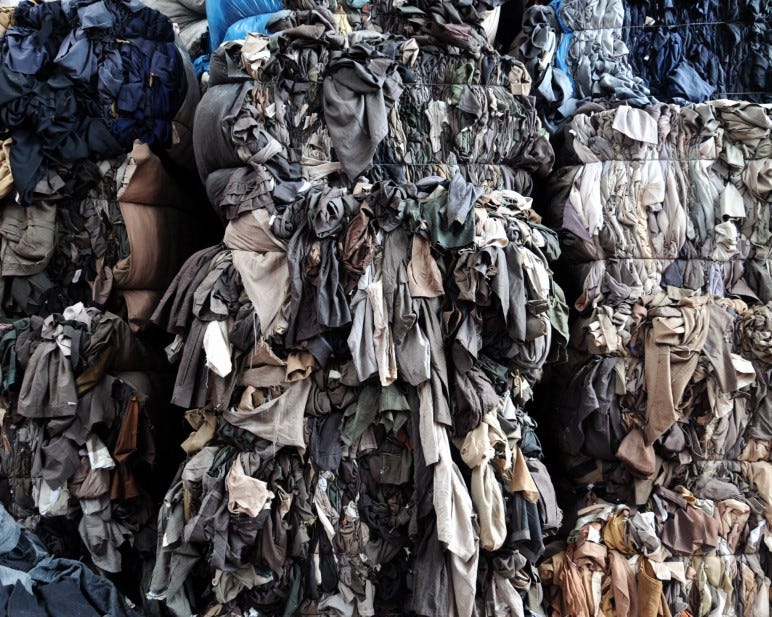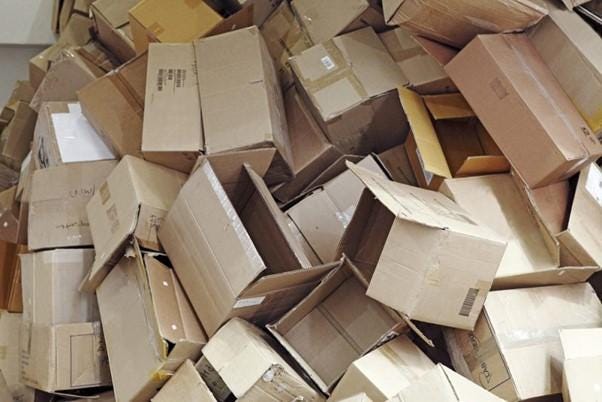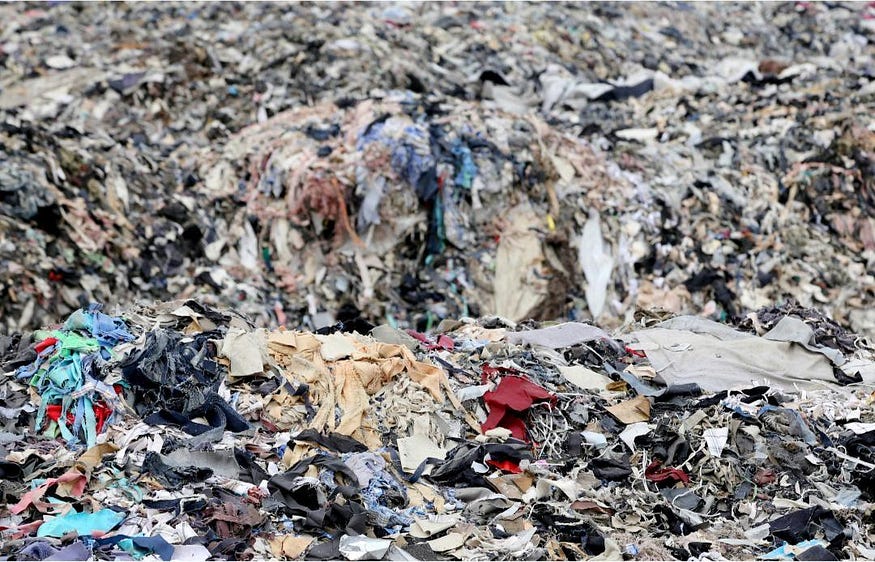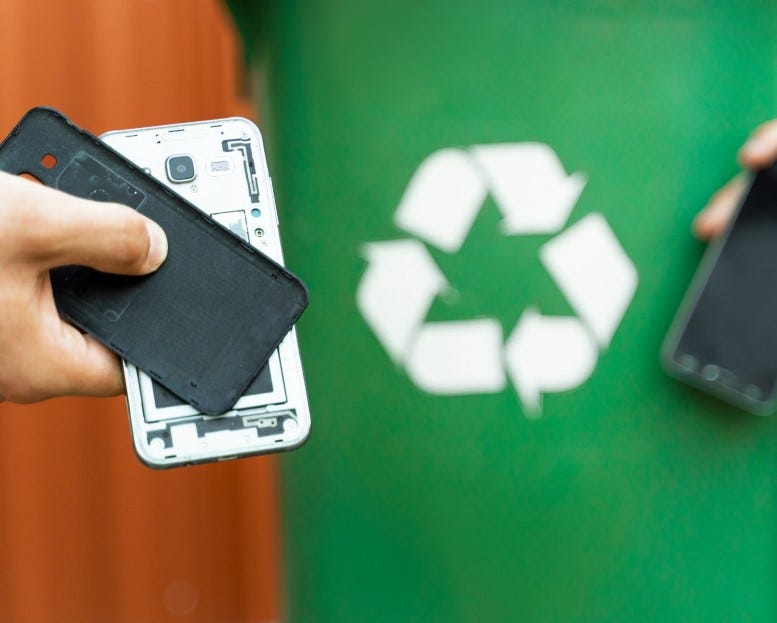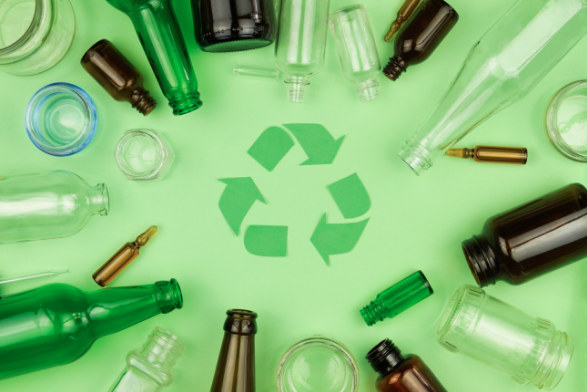
Waste Management solutions have evolved tremendously to meet the high standards of sustainability and profitability. These solutions are developed around the fact that the world is under a climate crisis and as a part of the climate action plan, waste management solutions become integral for survival. Many jump to empty conclusions in regards to how to fight climate change or global warming, but are blind to adopting smart strategies to implement and eradicate the problem.
Waste accumulation accounts for a major chunk of global warming, as it causes greenhouse gas emissions and pollutes our oceans, environment, and our natural source of food. How? Well, marine life is a major source of protein for many around the world and it is heavily impacted due to the waste found in the oceans. The waste, which is mostly plastic waste, ends up breaking down into microplastics which are mistaken for food. That is just one way of waste interacting with marine life, many of them tend to die by getting caught in a mass swirl of waste. Due to such incidents, the entire ecosystem gets compromised causing a chain reaction.
Similar is the case with the waste accumulated on land at the landfills. From landfills, some of the waste ends up in the oceans or it is left to rot or burn. Both ways it is emitting greenhouse gasses, which traps the heat in the atmosphere, causing global warming. If all that waste was to be taken care of, there would be fewer GHG emissions and our planet wouldn’t be warming up as it is today.
Innovative waste management solutions are there to help us manage our waste and ensure that an object’s usability is maximized. It can be done by either reusing, recycling, or reducing. All of that is applicable on an individual level. However, industrial-scale waste management or community-wide waste management requires specialized resources and strategic planning. As a result, waste management solutions are being implemented around the world in different industries to combat waste production.
While there have been many solutions that we come across daily, the new decade comes with an opportunity to revolutionize these solutions with a more sophisticated approach. Here we are going to expound upon the latest innovations in waste management technology and see how they have the potential to solve waste accumulation.
1. AI for Waste Sorting
Globally, Artificial Intelligence is taking up much of our daily chores upon itself and making our lifestyle more convenient than ever. In 2015, a trashbot system was invented in Colorado. It uses on-board machine learning and robotic systems to sort materials from a single disposal point. It claims the machines are able to do so with roughly 90% accuracy — not perfect, but it reduces the use of human resources! This is definitely a game changer to sort the waste for recycling. This technology is termed as machine vision that can help us tackle improper waste disposal and make the most of missed opportunities. Therefore, an AI solution can help us recycle efficiently and inexpensively while avoiding environmentally hazardous mistakes, inevitably achieving a zero-waste lifestyle.
2. Innovative Waste Recycling Plants
With technology advancing every day and machines getting smarter by the minute, it is no surprise that waste management facilities have received a major push as well. With more efficient machines saving businesses money and time while providing new raw materials to be pushed into production, this has led to a new era of recycling led by the Circular Economy movement. Sorters, shredders and scanners and more have made the whole recycling process streamlined and beneficial for investors and clients both. An industry that is valued in the billions globally, is still coming to terms with the whole recycling concept but it is definitely one for the future. Want to benefit through such a solution as well? Reach out to us on our official Website.
3. Zero-Waste Commercial Places
To manage waste, we need to come to terms with the amount of waste we produce.
Reducing your waste production by practicing a zero-waste lifestyle, can reduce the burden on the landfills. Keeping that in mind, multiple zero-waste commercial places are opening up around the world. One example is the City of Noida where YES Full Circle has implemented a Zero Waste Solution to benefit the community. These places specialize in producing zero-waste at an operational level, encouraging individuals to follow the same practice. Overall costs are reduced for all stakeholders involved and the forecasted results are amazing in the long run. Such a practice is reducing waste production on a business level as well as on a household level. If these zero-waste commercial places continue to progress, individuals will find themselves inevitably switching towards a more sustainable way of life.
4. Sustainable 3D Printing
As 3D printing became more popular, its potential was explored widely. So much so that there are construction companies using this technology to build infrastructures. Some are building homes, meanwhile, there’s an architectural design agency that created the world’s first 3D printed school set on four acres of land off the coast of Africa. To make 3D printing a sustainable and profitable solution for waste management, plastic waste can be used as a raw material. Recycled plastic can become a cheaper and sustainable resource, used for the purpose of building infrastructures. 3D printing is only sustainable when it is being utilized for manufacturing long-lasting products. Therefore, the potential of the technology can be tested with an aim of being environmentally friendly and 3D printed infrastructure has proven it by utilizing plastic waste as raw material.
5. Eco-ATM Devices
More than 53 million tonnes of E-waste is generated every year. Much of it ends up at the landfills, an insignificant number of it is recycled. The lack of convenience of recycling E-waste has led to its accumulation. However, as our natural resources are depleting, it is high-time to recycle electronic-waste through innovative waste management solutions. An innovation of Eco-ATM Devices was introduced which is going to pay in cash every time you deposit your E-waste. This E-waste can consist of portable electronic devices such as mobile phones, laptops, tablets, etc, no matter what the condition. These Eco-ATM devices can be set up nearby in every community.
Ensuring that all communities take part in recycling their E-waste for a sustainable future.
6. Waste Monitoring System
The Iot garbage monitoring systems are deployed all around the world, mostly in the developed countries. These systems enable the waste management authorities to monitor the level of garbage collected in the bins. Based on that, they can strategize the waste collection routes, ensuring that the waste-collecting vehicles are on a route that is energy efficient, saves money and time. These systems are also known as smart waste collection monitoring and alert systems because whenever the bins are full, the relevant collectors are informed and they can collect it in time. Moreover, the users can also
interact with the authorities regarding their waste disposal through the application provided by them. Bringing waste disposal on an exclusive digital platform, making waste disposal convenient and efficient. In this decade we will observe increased demand for these smart monitoring systems.
7. Plasma Gasification
Plasma Gasification is another technique that has been recently developed in order to deal with waste keeping in mind the sustainability and profitability goals. A process that involves heating waste with plasma to extreme temperatures and converting it into usable gasses like hydrogen. Since this process produces hydrogen, it creates an opportunity for a sustainable fuel source. This process is not widespread yet because it is new with impressive potential. If it were to be adopted soon, it has the potential to replace environmentally hazardous energy production. However, this new method is expensive, but it can also become a source of income by selling off hydrogen. The potential of plasma gasification is yet to be completely explored and can prove to be beneficial for energy-consuming industries. Currently the main sites for this new innovation are set up at Wuhan China, Mihama-Mikata Japan, Tainan City Taiwan and USS Gerald R.
8. Recycling Apps
As the world becomes increasingly reliant on technology, apps that help us recycle are becoming more popular. There are now apps that can help you recycle everything from plastic to glass to paper. And, as technology improves, these apps are becoming more and more user-friendly.
Some of the most innovative recycling apps allow you to scan barcodes to find out whether an item can be recycled. Others provide tips on how to reduce your waste. And still, others connect you with local recycling centers.
Whether you’re looking to reduce your carbon footprint or simply learn more about recycling, there’s an app for that. So why not give one a try? You might just be surprised at how easy and effective recycling can be with all of these technologies in hand and more innovative ideas to promote environmentally friendly solutions coming out every day, maybe it won’t be long till we can bring the world back to how it was before. The only thing that is missing is the right mindset. Many people are stuck in the same traditional linear economy cycle instead of trying to fit into the Circular Economy lifestyle that is beneficial for all. Even though there are some claiming that the damage has been done and no amount of effort can fix the mess created, we believe that it can be decreased to such a level that will effectively make the world more sustainable for generations to come. Join hands with us as we promote the Circular Economy approach to make that all-important difference.
Get More Info : Waste Management in UAE | dubai municipality approved
Visit Us : https://yesfullcircle.com/
Paper Waste Reduction , Brand Protection in UAE , circular economy solutions

